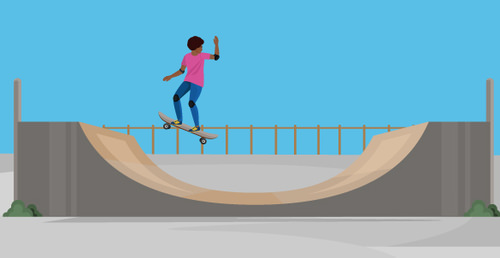科学方法
章节大纲
-
Don Frazier, a NASA chemist, conducting an experiment using a laser imaging system.
::美国航天局化学家Don Frazier使用激光成像系统进行实验。In science, we need to make observations on various phenomena to form and test hypotheses . Some phenomena can be found and studied in nature, but scientists often need to create an experiment . Experiments are tests under controlled conditions designed to demonstrate something scientists already know or to test something scientists wish to know. Experiments vary greatly in their goal and scale, but always rely on repeatable procedure and logical analysis of the results. The process of designing and performing experiments is a part of the scientific method.
::在科学方面,我们需要对各种现象进行观察,以形成和测试假设。有些现象在自然界中可以找到和研究,但科学家往往需要创造实验。实验是在受控制条件下进行的试验,旨在展示科学家已经知道的事物或测试科学家希望知道的事物。实验在目标和规模上差异很大,但总是依赖可重复的程序和对结果的逻辑分析。设计和进行实验的过程是科学方法的一部分。The Scientific Method
::科学方法The scientific method is the process used by scientists to acquire new knowledge and improve our understanding of the universe. It involves making observations on the phenomenon being studied, suggesting explanations for the observations, and testing these possible explanations, also called hypotheses , by making new observations. A hypothesis is a scientist's proposed explanation of a phenomenon which still must be tested.
::科学方法就是科学家用来获取新知识和增进我们对宇宙了解的过程。 它涉及对研究中的现象进行观察,为观察提出解释,并通过进行新的观察来检验这些可能的解释,也称为假设。 一种假设是科学家对一个仍然必须测试的现象提出的解释。The scientific method is employed by scientists around the world, but it is not always conducted in the order above. Sometimes, hypothesis are formulated before observations are collected; sometimes observations are made before hypothesis are created. Regardless, it is important that scientists record their procedures carefully, allowing others to reproduce and verify the experimental data and results. After many experiments provide results supporting a hypothesis, the hypothesis becomes a theory . Theories remain theories forever, and are constantly being retested with every experiment and observation. Theories can never become fact or law .
::科学方法为世界各地的科学家所采用,但并不总是按上述顺序进行。有时,在收集观察之前先提出假设;有时,在建立假设之前先提出观察;尽管如此,科学家必须仔细记录其程序,允许他人复制和核实实验数据和结果。在许多实验提供结果支持假设后,假设就变成了理论。理论永远是理论,并且不断在每次实验和观察中进行重新检验。理论永远不能成为事实或法律。In science, a law is a mathematical relationship that exists between observations under a given set of conditions. There is a fundamental difference between observations of the physical world and explanations of the nature of the physical world. Hypotheses and theories are explanations, whereas laws and measurements are observational.
::在科学方面,法律是一种数学关系,它存在于特定条件下的观测之间。 对物理世界的观察与对物理世界的性质的解释之间存在着根本的区别。 假设和理论是解释,而法律和测量则是观察。Have you ever skateboarded down a ramp? Well, believe it or not, there is a lot of physics involved! You might have observed that the steeper the ramp, the faster you go. What else besides the ramp angle influences how fast an object goes down it? You could use the scientific method to find out.
::你曾经滑过斜坡吗?信不信由你,有很多物理因素!你可能已经看到斜坡越陡,走得越快。除了斜坡角度,还有什么影响物体滑下坡道的速度?你可以使用科学方法找出答案。Set up a simple experiment in the PLIX Interactive below to investigate the variables that affect how fast a skateboard rolls down a ramp:
::在下面的PLIX互动中设置一个简单的实验, 以调查影响滑板滑坡速度的变量 :Summary
::摘要-
The scientific method consists of making observations, formulating a hypothesis, testing the hypothesis with new observations, making a new hypothesis if the new observations contradict the old hypothesis, or continuing to test the hypothesis if the observations agree.
::科学方法包括提出观察、提出假设、用新的观察检验假设、如果新的观察与旧的假设相矛盾,则采用新的假设,或者在意见一致的情况下继续试验假设。 -
A hypothesis is a tentative explanation that can be tested by further observation.
::假设是一种暂时的解释,可以通过进一步观察加以检验。 -
A theory is a hypothesis that has been supported with repeated testing.
::理论是一种得到反复试验支持的假设。 -
A scientific law is a statement that summarizes the results of many observations.
::科学法是一个概括许多观察结果的声明。 -
Experimental data must be verified by reproduction from other scientists.
::实验数据必须通过其他科学家的复制来核实。 -
Theories must agree with all observations made on the phenomenon under study.
::理论必须同意就所研究的现象提出的所有意见。 -
Theories are continually tested, forever.
::理论是不断的考验, 永远的。
Review
::回顾-
A scientific investigation is not valid unless every step in the scientific method is present and carried out in the exact order listed in this lesson.
-
True
::真实 -
False
::假假
::除非科学方法的每一步骤都按本课目所列的确切顺序存在和进行,否则科学调查是无效的。 -
True
-
When a theory has been known for a long time, it becomes a law.
-
True
::真实 -
False
::假假
::当一个理论早已为人所知时,它就会成为法律。 -
True
-
Which of the following is closest in meaning to the word “hypothesis”?
-
Fact
::事实事实事实事实 -
Law
::法律 法律 法律 -
Formula
::公式公式公式 -
Suggested explanation
::建议作出的解释 -
Conclusion
::结论 结论 结论 结论 结论
::以下哪一种最接近于“伪证”一词的含义? -
Fact
-
Why do scientists sometimes discard theories?
-
The steps in the scientific method were not followed.
::没有遵循科学方法的步骤。 -
Public opinion disagrees with the theory.
::公众舆论不同意这一理论。 -
The theory is opposed by the church.
::教会反对这一理论。 -
Contradictory observations are found.
::发现了相互矛盾的意见。 -
Congress voted against it.
::国会投了反对票。
::为什么科学家有时会抛弃理论?科学方法的步骤没有被遵循。公众舆论不同意这个理论。教义反对这个理论。发现了相反的观点。国会投票反对它。 -
The steps in the scientific method were not followed.
-
If a hypothesis is rejected by the observations from an experiment, then the experiment
-
May have been a success.
::可能取得了成功。 -
Was a failure.
::是个失败 -
Must have been poorly designed.
::一定是设计得很差 -
Didn’t follow the scientific method.
::没有遵循科学方法。
::如果实验的观察结果否定了假设,那么实验可能就成功了。失败了。设计得一定很差。没有采用科学方法。 -
May have been a success.
Explore More
::探索更多Use this resource to answer the questions that follow.
::使用此资源回答下面的问题 。-
What are the first two examples of possible questions that the scientific method can be used to answer?
::科学方法可用于回答哪些可能的问题,前两个例子是什么? -
Which two Greek philosophers are mentioned in the video?
::影片中提到哪两位希腊哲学家? -
Which scientist disproved Aristotle’s idea that heavy objects fall faster than lighter objects? How?
::哪个科学家否定了亚里士多德关于重物体落落速度快于较轻物体的观点? -
How can you remember the difference between an independent, dependent, and controlled variable?
::您如何记得独立、依赖和受控变量之间的区别?
-
The scientific method consists of making observations, formulating a hypothesis, testing the hypothesis with new observations, making a new hypothesis if the new observations contradict the old hypothesis, or continuing to test the hypothesis if the observations agree.


